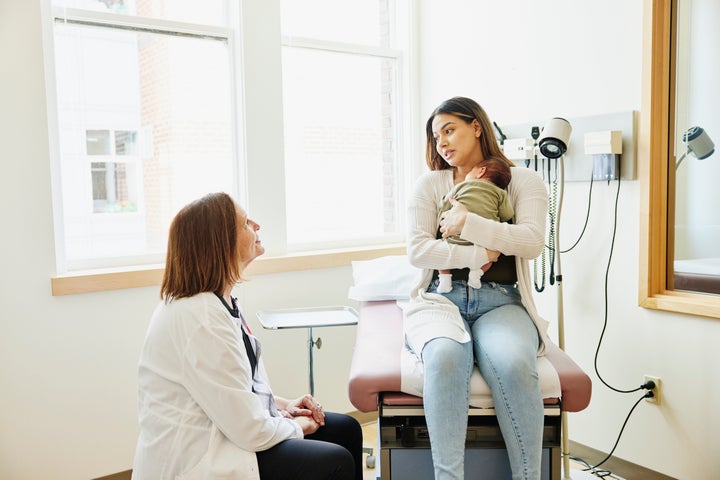🔴 Website 👉 https://u-s-news.com/
Telegram 👉 https://t.me/usnewscom_channel
The measles outbreak in West Texas and beyond is only getting worse. Two unvaccinated children have died of the virus, and measles cases are the highest they’ve been in 33 years.
The bulk of measles cases have been in Texas, but states including New Jersey, New York, Washington, Rhode Island, Pennsylvania and Ohio have also reported cases.
It’s natural to be scared of this highly contagious virus, which in rare cases can cause death and severe illness, but not everyone has to have the same level of worry. (Yes, vaccination is key for your safety.)
Below, doctors share who should be worried and what you should know if there’s a measles case in your area.
If you’re sure that you’re fully vaccinated against measles, you don’t have much to worry about.
People who are fully vaccinated against measles can breathe a sigh of relief; you likely are safe from any serious complications from measles even if you do get infected.
“It’s generally cited that the measles vaccine, assuming you’ve received two doses of the current MMR vaccine, current meaning since around 1969, is about 97% effective in preventing measles. So the vast majority of people have really little or nothing to be concerned about,” said Dr. Daniel Kuritzkes, the chief of the division of infectious diseases at Brigham and Women’s Hospital in Boston.
If a vaccinated person does get infected with measles, “The chance of that infection going on to have some kind of meaningful or clinically significant bad outcome is quite low,” said Dr. Neil Gandhi, an emergency medicine physician at Houston Methodist Hospital.
“People, to the extent that they’re able, should try to verify their vaccine history,” said Kuritzkes.
But since most school districts required proof of measles vaccination to start school until the last few years and since nearly all children born between roughly in 1969 until the last few years have been vaccinated, “It’s generally safe to assume that if you grew up in the United States and are under 60 years of age, that you have been been appropriately vaccinated,” noted Kuritzkes. (That is unless you know that your family didn’t get you vaccinated.)
If you were born before 1962 or 1963, you also likely don’t have to worry.
Before the measles vaccine was developed, most people got measles. Meaning, those who were born before the measles vaccine was developed in 1963 are thought to have lifelong immunity from natural infection, said Kuritzkes.
So, if you are old enough to have had measles, you don’t need to be concerned about exposure now, he said.
People who were vaccinated before 1969 may need to consider getting an additional booster.
According to Kuritzkes, “There is this small group of people who were vaccinated [before] 1969 with a killed measles vaccine that is less effective than the live measles vaccine” that is now used in the MMR shot.
This isn’t a huge group of people, it’s estimated to be about 1 million Americans, he said.
“Those individuals should receive a measles booster with the current MMR if they have not already received that at some point during their adulthood,” Kuritzkes added.
Thomas Barwick via Getty Images
If you aren’t sure of your vaccine history, you have a few choices.
It’s a scary time to not be sure if you’re fully vaccinated against measles, but there are a couple of things you can do, according to Dr. Michael Angarone, an associate professor of medicine in the division of infectious diseases at Northwestern Medicine in Chicago.
First, you can ask your doctor to run a blood test to see if you have antibodies to measles, he said. If you do have antibodies, that means you’re protected. If you don’t, you can set up an appointment for your shot.
If you can’t get the blood test, “The other option is to just get vaccinated. There is not harm in getting an extra dose of the MMR vaccine as an adult,” Angarone noted.
While the vaccine is generally given at 12 months, babies can be vaccinated early in certain situations.
Many people are rightfully concerned about infants as measles cases continue to crop up. “Babies who are under the age of 12-months-old, they’re definitely at a risk for some measles complication if they’re exposed to someone,” said Gandhi.
Typically, babies are eligible for the first dose of the vaccine between 12 months and 15 months, but can get it earlier in certain situations.
“Children can receive it as early as 6 months,” said Kuritzkes, “and so I think it depends a bit on individual circumstances. Certainly, if you were living in Texas or New Mexico, I would be thinking about vaccinating infants at 6 months of age because of how widespread the current outbreak is.”
“If you’re elsewhere in the country, it depends on what’s happening in your community, and if you’re planning to travel,” Kuritzkes said. It’s often recommended that parents traveling with infants get them vaccinated before travel (so long as they’re at least 6 months old).
If your child is under 6 months and unable to get the shot, make sure the people who are around your child are vaccinated against measles, Angarone noted. And, if there’s an outbreak in your immediate area, consider keeping them home until the outbreak dissipates.
If you can’t get the MMR vaccine because you’re immunocompromised or pregnant, you need to take precautions.
“For most people who are immunosuppressed, so people who are not on active chemotherapy or are not on high doses of steroids … most of them we treat as if their immune system is working properly,” said Angarone.
“And so that’s where I think it becomes important for those individuals to really reach out to their health care providers,” Angarone added. This way, your doctor can help decipher if you can get the measles vaccine and how best to protect yourself.
“If you get exposed, measles virus is one of the, if not THE most contagious infectious diseases that we see, and so if you’re exposed, there’s not a lot we can do to prevent that infection from developing.”
– Dr. Michael Angarone
“The group that we’re very mindful of are individuals that have more severe immunocompromised states,” he said, which includes those who have had an organ transplant, a stem cell transplant, have advanced HIV, are receiving chemotherapy, are on high-doses of steroid medication or have a hereditary immune compromised condition.
The MMR vaccine is not recommended to people in these groups because “the vaccine is a live virus vaccine, and we worry about the potential adverse reactions to that live vaccine in someone who has a severe immune compromising condition,” said Angarone.
So, unless there is a very large outbreak or there has been a thorough conversation with a doctor, it’s not recommended for these folks to get the jab.
This is also true for pregnant people as the live vaccine can put the fetus at risk, he said.
So, what are unvaccinated people in these groups supposed to do? “What I would say is, in that group of people, everyone that’s around those individuals, partners, spouses, children, family, parents, friends, co-workers, should be vaccinated and can get vaccinated,” added Angarone.
If you’re not vaccinated and are able to get the shot, you should get vaccinated.
If you can get the MMR vaccine but don’t have it, you should get vaccinated, all three experts told HuffPost.
“And you need to receive two vaccinations to be fully immune, and those vaccines need to be administered at least a month apart,” said Kuritzkes.
Vaccination is the way to prevent measles, added Angarone — not vitamin A or cod liver oil or any of the other at-home remedies that are gaining popularity.
“If you can’t, if you fall into one of those high-risk groups where the measles vaccine is contraindicated, or you’re just not willing to get vaccinated, you have to be mindful of, ‘Am I developing symptoms of measles?’” Angarone noted.
“If you get exposed, measles virus is one of the, if not the most contagious infectious diseases that we see, and so if you’re exposed, there’s not a lot we can do to prevent that infection from developing,” said Angarone.
If you are exposed to the virus, you should monitor for symptoms, which include a high fever, cough, watery red eyes, runny nose, and a rash that starts on the head and face and moves down to the rest of the body, according to Angarone.
“If you have any of those after exposure, you want to make sure you isolate yourself so that you’re not exposing anyone,” Angarone noted, and added that you’ll also want to reach out to your doctor who can give guidance in regard to monitoring your symptoms and symptom management.
“We really get concerned about the late-stage symptoms — patients who get significant high fever … swelling of the brain and other organs, that’s a big concern, and patients who can really only get that will be the unvaccinated,” Gandhi added.
“Fortunately, the chance of having a severe infection, even if you’re unvaccinated, is quite low,” said Gandhi.
A low chance of severe symptoms doesn’t mean you should ignore the risk, though. “Even if serious effects are rare, do you really want to roll the dice to have your child or your loved one be the one that is that 1%? I don’t,” said Angarone.
“These vaccines have been given to hundreds of millions of people. We know that they’re safe,” said Kuritzkes.

